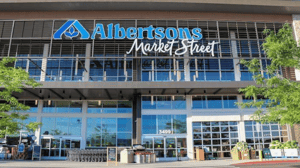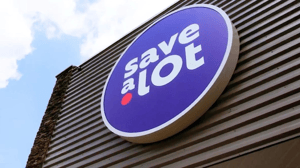ShopRite Owner Blames Soda Tax for Philly ClosureShopRite Owner Blames Soda Tax for Philly Closure
Measure dinged sales at a Haverford location by 23%, Jeff Brown says. The controversial measure dinged sales at a Haverford location by 23%, Jeff Brown says.

The owner of a Philadelphia ShopRite store that’s closing in March is putting the blame squarely on a controversial city beverage tax that he said drew his shoppers to neighboring counties where they could buy drinks cheaper, costing the store millions in sales.
Jeff Brown, president and CEO of Brown’s Super Stores, said the ShopRite of Haverford in western Philadelphia, which is in easy reach of neighboring Delaware and Montgomery counties, couldn’t sustain the loss of sales that came with the beverage tax and has opted to close the store on March 14. Philadelphia Mayor Jim Kenney instituted the 1.5-cents-per-ounce tax on distributors of sweetened beverages in 2017, saying the initiative would raise funds for investment in schools, parks, recreation centers and libraries targeting economically disadvantaged neighborhoods.
The controversial measure ironically made bitter enemies of the city and Brown, who is nationally known for pioneering investment in needy Philadelphia neighborhoods, including “food deserts.” Brown's Super Stores operates six stores in the city and 13 overall.
“The closing of this store is a direct result of the Philadelphia sweetened beverage tax enacted by Mayor Kenney in January 2017,” Brown said in a statement. “The tax hit this store particularly hard, resulting in a 23% loss of sales which has left this store unsustainable.”
In an interview with WGB last year, Brown said his six ShopRite supermarkets inside the city lost $41 million in sales in the first year since the tax was enacted.
“While the tax has led to beverage sale losses of more than 50%, the majority of loss is on nonbeverage items such as grocery staples and fresh produce,” he said.
“The hardest-hit stores are the locations closest to the border of the suburbs, which do not have any beverage tax and where city residents now migrate to buy their groceries—and less affluent customers who don’t have the money to pay the tax are often impacted the most,” he added. “This beverage tax, the largest of its kind in the nation, has turned the already difficult challenge of eliminating food deserts into a nearly impossible one. With significant reductions in sales, wage, gross receipts and income taxes, I also question whether this tax is sustainable. There are definitely less jobs, less opportunity and less investment in the city because of this tax.”
Retailers and beverage industry groups nationwide have watched the Philadelphia measure closely. The tax is levied not on retailers or consumers directly but on distributors; a 2017 study indicated that distributors were passing along the tax to retailers, who in turn passed much of their costs onto consumers. The same study indicated while supermarket sales were already falling in the city, the new tax did not exacerbate the decline, but that is a matter of debate. A study commissioned by the American Beverage Association in late 2017 cited IRI data showing carbonated beverage sales at supermarkets in the city had fallen by 60% since the tax, while stores in bordering counties saw the same category show a 30% sales increase.
The tax survived a state Supreme Court challenge last summer brought by merchants and the beverage industry, who argued it duplicated taxes already on consumers. The majority of judges however allowed the measure to stand, ruling the tax was on distributors and dealers.
A spokesman for Kenney was not immediately available for comment. In a statement published in the Philadelphia Inquirer, a spokesman for the mayor said, “It is no surprise that Mr. Brown has decided to scapegoat the Philadelphia Beverage Tax, but neither he nor the beverage industry have yet to present any evidence that the tax has had any impact on sales.
Bob Gorland, a site selection specialist for Matthew P. Casey & Associates, noted that volume loss for city retailers was particularly acute. “All supermarkets, club stores, Target, Walmart—they’re all losing sales to neighboring counties,” Gorland said. “The cost of doing business in the city is such that a supermarket typically needs to do 30% more volume than a suburban store just to break even, so any loss of sales can really hurt the bottom line."
About the Author
You May Also Like






